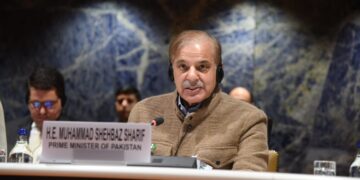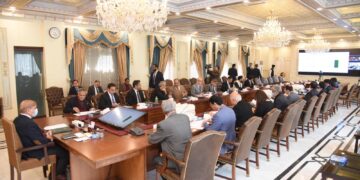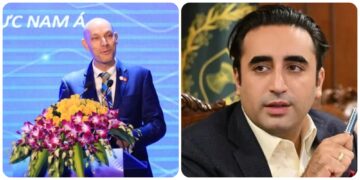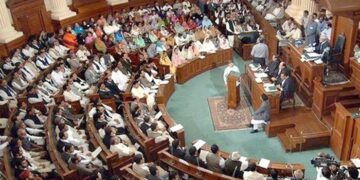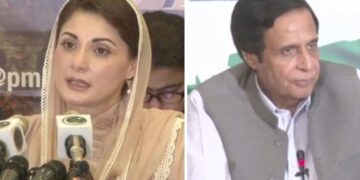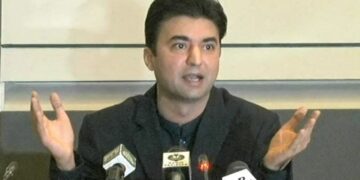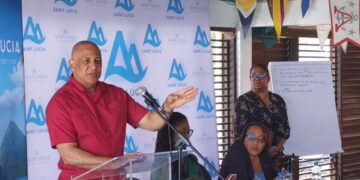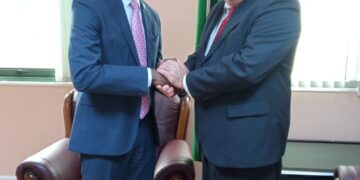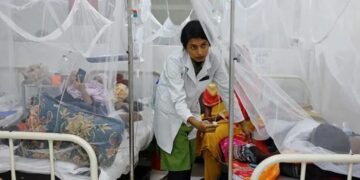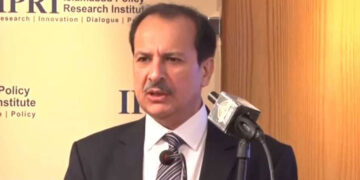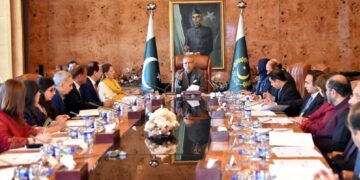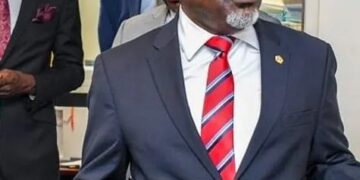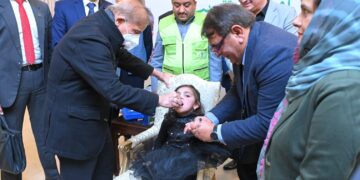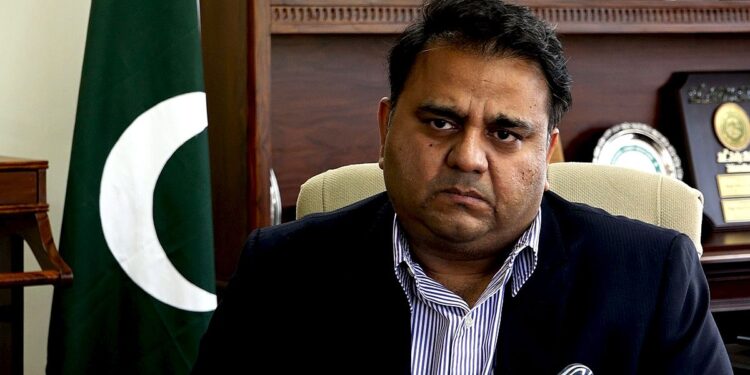Islamabad: The federal cabinet has welcomed the Election Commission Pakistan’s (ECP) decision to use electronic voting machines (EVMs) during the local government (LG) elections in Islamabad, according to Information Minister Fawad Chaudhry. The commission has been asked to issue a tender (with required specifications) for purchasing the machines.
The meeting, which was presided over by Prime Minister Imran Khan, also learned that 20 million individuals in Pakistan had only received one dose of the Covid-19 vaccination.
The government constituted a committee consisting of federal ministers Asad Umar and Zobaida Jalal to address the issues of the protesting fishermen in Gwadar.
The committee endorsed a proposal to make it easier for officials from foreign non-governmental organisations (NGOs) working in Afghanistan to obtain Pakistani visas.
The government made a crucial step by giving one year to replace currency notes that were discarded five years ago. Previously, the deadline for their replacement was December 2016.
According to Fawad Chaudhry, the meeting was briefed on the introduction of electronic voting machines (EVMs) and the provision of voting rights to Pakistanis living abroad.
“The cabinet applauded the ECP’s decision to utilise electronic voting machines in Islamabad’s local body elections,” he added, adding that 4,000 EVMs would be required for LG elections in the federal capital.
“Obtaining 4,000 EVMs is not a difficult task. “Once the election commission issues a tender, the manufacturing businesses will promptly deliver equipment that meet the required criteria,” he stated.
The cabinet was also briefed on the delivery timetable and use of electronic voting devices at all polling locations across the country, as well as staff training.
The meeting reaffirmed its commitment to using electronic voting machines for the upcoming election.
According to the information minister, the cabinet appointed a two-member team consisting of Asad Umar and Zobaida Jalal, who will travel to Gwadar on behalf of the prime minister to try to address the issue.
Mr Chaudhry added, “They would talk to the demonstrators because the prime minister has already taken note and ordered the situation to be resolved.”
According to the Prime Minister’s Office, the meeting voted to make it simpler for international NGOs to obtain Pakistani visas.
The decision was made for humanitarian reasons and to assist the Afghan people.
The government will also make it easier for international non-governmental organisations (NGOs) working for the Afghan people to register.
Similarly, the procedure of getting Pakistani visas for Afghans has been simplified, with the required security clearance cut from 30 days to 15 days.
The committee decided to prolong the facility for Afghans wishing to immigrate to other countries via Pakistan for another 60 days. The facility allows for both land and air transport.
Dr. Faisal Sultan, Special Assistant to the Prime Minister on Health, briefed cabinet members on how to protect themselves from Omicron, the latest Covid-19 variant threatening the entire world.
The cabinet stressed the importance of speeding up immunizations, maintaining social distance, and wearing masks.
It was also revealed that 20 million people in the country have yet to obtain their second coronavirus vaccine shot.
“To prevent the spread of Covid-19, the cabinet urged all such persons to get the second jab as soon as possible,” Mr Chaudhry said.
The State Bank of Pakistan had requested a six-year extension to replace currency notes in the denominations of Rs10, Rs50, Rs100, and Rs1,000, but the cabinet only allowed a 12-month extension, according to the minister.
“Those who want to convert their currency notes should do so within a year,” he stated.
Surprisingly, the facility is being offered to those who were unable to exchange their cash notes before the December 2016 deadline.
Fawad Chaudhry termed retired Justice Wajihuddin Ahmed a “buffoon” and denied Mr Wajih’s charges against Prime Minister Imran Khan, who resigned from the ruling Pakistan Tehreek-i-Insaf in September 2016 purportedly amid differences with the premier.
“Such buffoons prowl the streets, attempting to gain notoriety in the media by making such claims. “Please do not give importance to these people since they are not even treated with respect in their own families,” the minister urged reporters.
Imran Khan used to earn Rs5 million from his political advisors to run his sumptuous hilltop mansion in Banigala, according to Justice Wajihuddin Ahmed, who alleged this in a recent TV show.
Chaudhry warned of a looming gas shortage in Pakistan, claiming that the country’s natural resource was rapidly decreasing and that “Pakistan will have no gas in years to come.”
People who get cheaper gas in big cities, he continued, should immediately adjust their behaviours. He went on to say, “This tendency will not last long.”
Meanwhile, the minister stated that the Sugar Sector Reform Committee’s report, which was released on Tuesday, featured various recommendations, including deregulation, to reduce the government’s influence in price setting.
“Before any final decision is made, the study will be accessible for public debate,” he added.
Shaukat Tarin, the Prime Minister’s Inflation Adviser on Finance, presented a comparison of the prices of basic commodities to the federal cabinet, claiming that the weekly inflation rate had fallen by 0.07 percent due to lower costs of sugar, flour, and other household staples.
Apart from the pricing of banaspati ghee and tea leaves in the region, the cabinet was informed that all other basic products were cheaper in Pakistan.
Flour, gramme, dal mash, dal moong, tomato, onion, chicken, and petrol are among the commodities.
The cabinet, on the other hand, voiced concern about the high prices of basic commodities in Sindh.
The meeting agreed a modification to the bilateral air route between Pakistan and Tajikistan, among other things. Both the distance travelled and the expense of travel will be reduced as a result of this.
Similarly, the Kazakh Air Company has been given permission to begin flights between Pakistan and Kazakhstan, with the goal of providing direct air travel between the two nations and boosting bilateral trade.
The cabinet authorised the Aviation Division to finalise air travel agreements with Central Asian countries in order to enhance trade between Pakistan and these countries.
It also approved a revision to the Pakistan-Iraq air travel agreement to increase commercial flights between the two countries.
Meanwhile, the cabinet was informed that urea was plentiful in the country. The Sui Northern Gas Company, on the other hand, will send gas to plants by January 2022 to secure its availability for the Rabi crop. The gathering was also informed that gas would be given to the Pak Arab and Fatima Fertilizer plants, and that the process of importing an additional 50,000 tonnes of urea would be finished quickly.
According to the cabinet, a bag of urea costs around Rs1,864 in Pakistan, but costs Rs10,000 in other countries.
The group was also informed that the country had enough gasoline and diesel to last for another 27 days.
Meanwhile, the information minister announced that 75 exploration licences had been granted, bringing in Rs29 billion in revenue.
He said the meeting emphasised the importance of maintaining LPG cylinder safety requirements and ordered action against individuals selling gasoline at unauthorised stations or in plastic containers.
